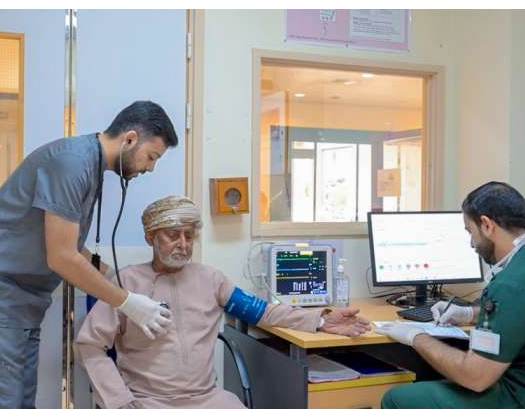Muscat—Under Royal Decree No. 44/2025, an integrated system of scientific and practical regulations has been established through the Public Health Law, which aims to enhance societal health and safety.
As part of Oman Vision 2040's national agenda, the legislation intends to provide inclusive health services that assure universal access to healthcare. Moreover, it focuses on elevating care quality through cooperative efforts between health sectors and relevant stakeholders.
All dimensions of public health are covered by this law, which lays out fundamental principles to protect the physical, mental, psychological, and social well-being of individuals.
Its emphasis is on preventing diseases and ensuring a healthy environment that is devoid of pollutants harmful to public health. This law acts as a centralized reference for standardizing public health ideas, clarifying the roles and responsibilities of all involved parties, and enhancing coordination mechanisms. It also advances the formulation of health initiatives for disease prevention, management, and treatment, while boosting public immunity and delineating legal and operational frameworks for public health.
One of the significant aspects of the law is the classification of preventive, curative, and rehabilitative health services available to citizens, residents, and visitors in Oman. It guarantees the rights of patients, offers protection for vulnerable populations, and improves collaborative efforts in public health programs.
Additionally, the legislation tackles aspects of infectious disease management, health measures at borders, environmental health standards, and bioethical concerns like cloning, organ donation, and reproductive health.
A primary goal of the Public Health Law is to establish a strong regulatory framework that enhances health protection and encourages both local and international collaboration in handling public health issues. Furthermore, it strives to educate the public about health risks and preventive strategies.
The initial chapter of the law ensures that healthcare services are equally accessible to all individuals via public, private, and public-private partnership entities, explicitly prohibiting discrimination in healthcare delivery. The subsequent chapter protects physical and mental health by banning any actions that may cause harm to an individual's well-being.
Meanwhile, the third chapter demands coordinated approaches to manage infectious diseases and epidemics, while the fourth chapter sets forth guidelines for food safety, workplace health, and environmental protection, including standardized rules for food production.
By detailing obligations and protecting rights, the Public Health Law underscores Oman’s commitment to a sustainable and all-encompassing healthcare system, making the country an appealing hub for investment in the health sector.













